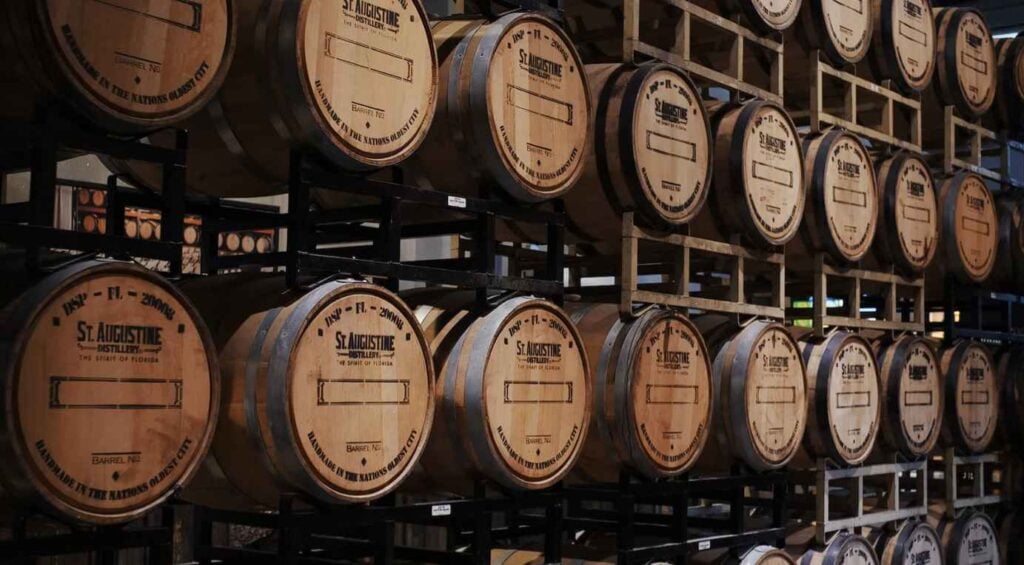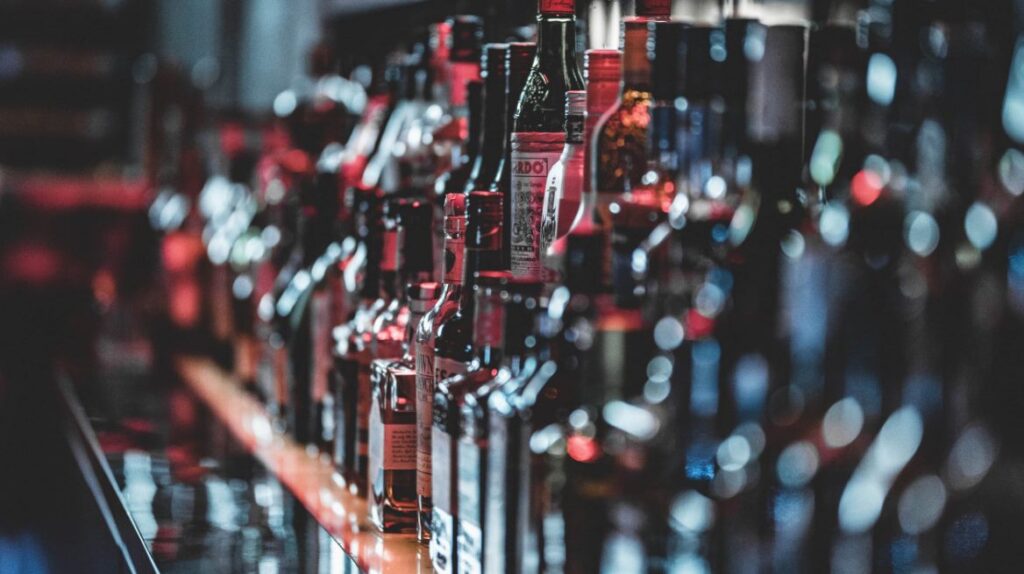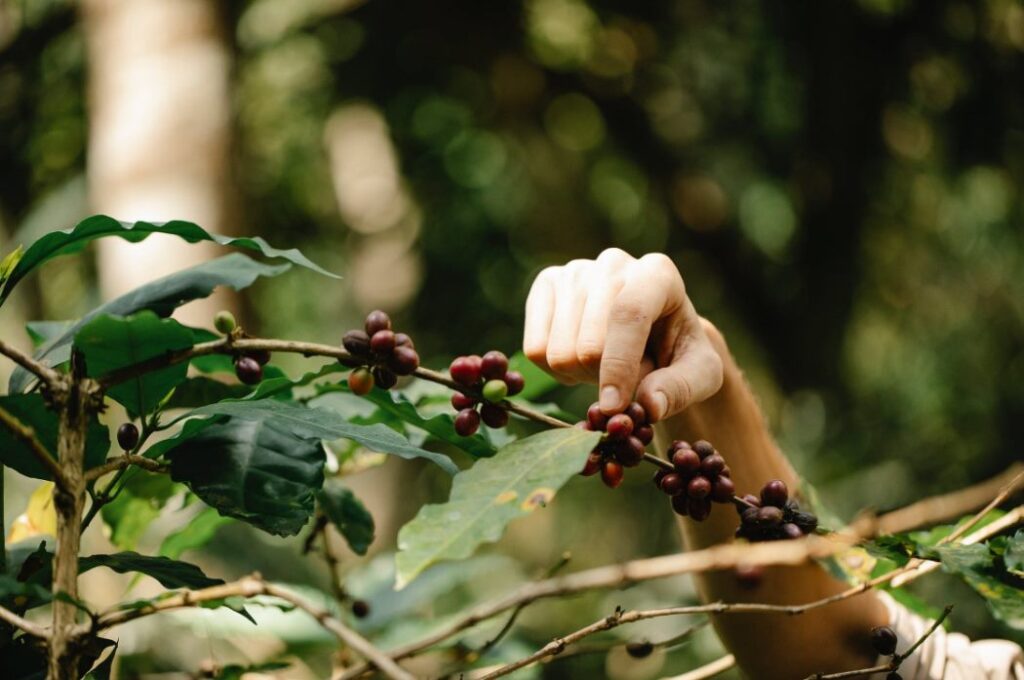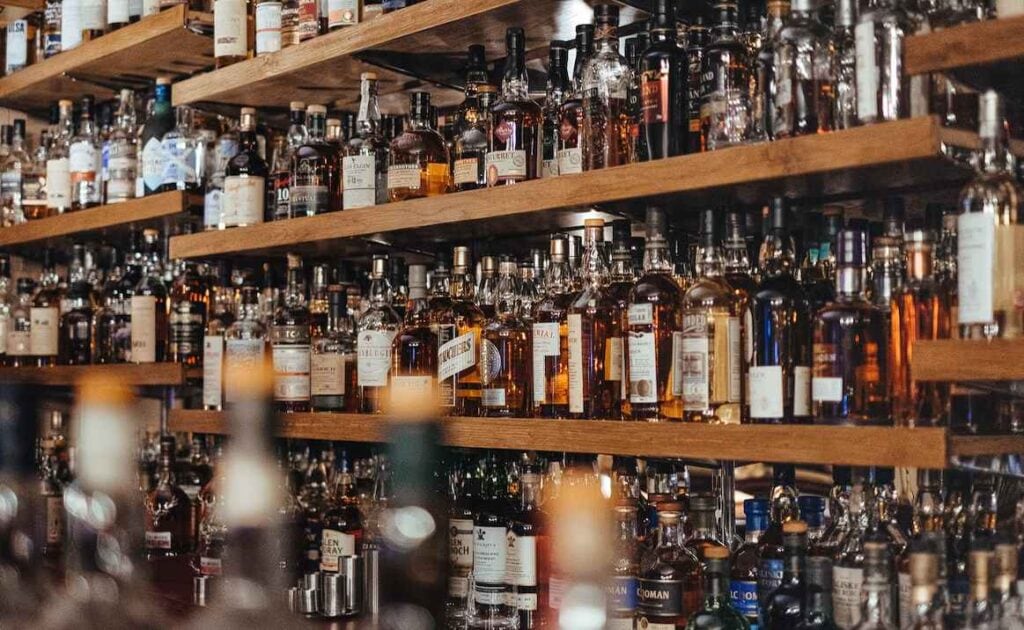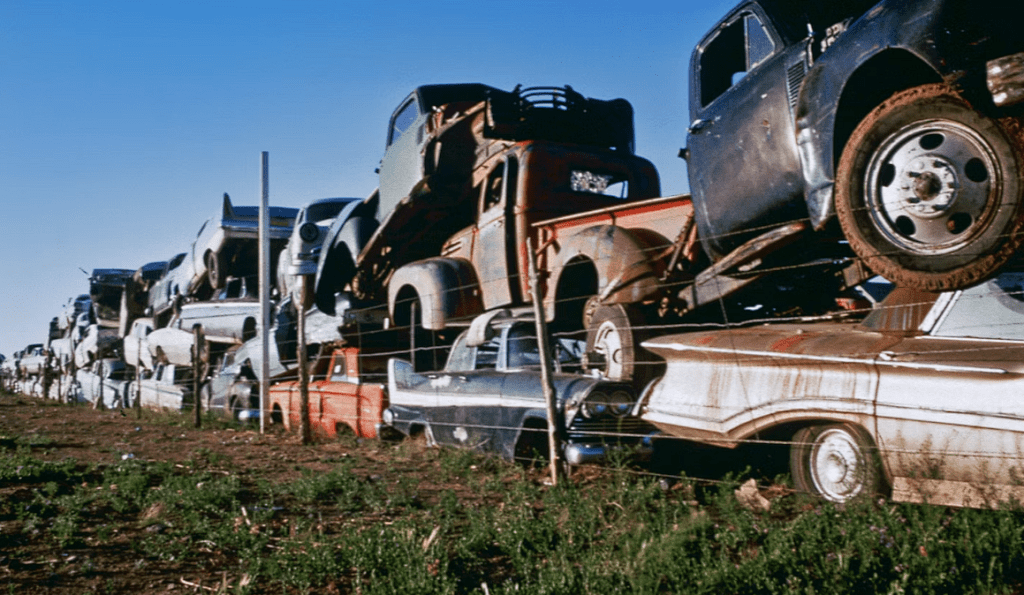Are you looking to start a distillery in 2023? Starting a successful alcohol production business is an exciting and expansive adventure. With the right combination of skills, contacts and research, you can go from idea to fruition with some hard work. Whether you are starting small or aiming for maximum output, having the right framework in place can make the difference between reaching your goals and falling short.
In this blog post, we will explore how to get started on opening up your very own distillery in 2023! We'll walk through what information and resources you need to gather as well as crucial steps that will bring your business vision to life so that you can put all those long days of planning. For example, planning licensing requirements, understanding marketing strategies for growth, and building connections with local vendors for great success.
Let's get started!
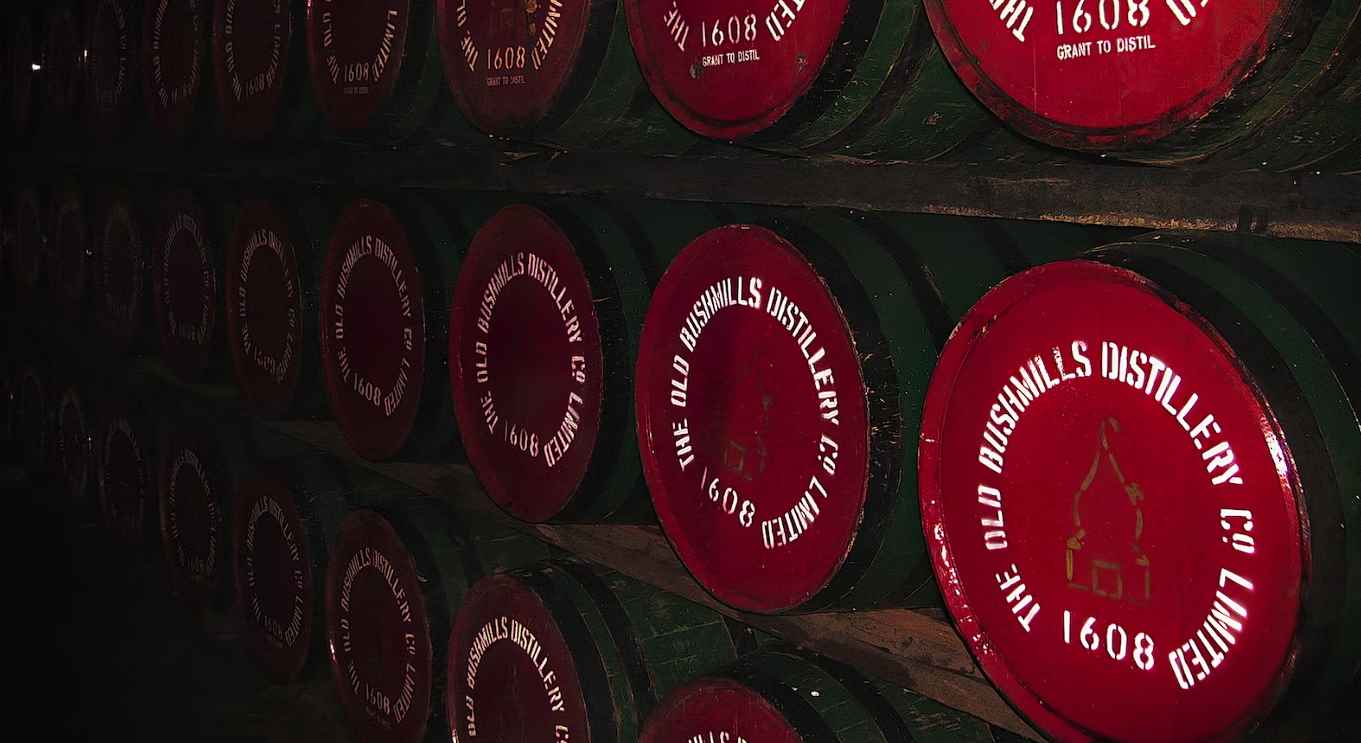
Enrich your taste journey today by coming down for an unforgettable tasting experience at Tar Barrel Mornington Brewery & Distillery!
Tips for Beginning Your Own Distillery
The process of starting a distillery is laborious and calls for a significant amount of patience, and when I say "significant amount of patience," I mean years. For example, suppose you're planning to establish a distillery to produce an alcoholic beverage that has to be aged, like whisky. In that case, you won't start seeing revenues from it until the finished result is available for purchase.
Suppose you are able to contain your impatience and are eager to get started distilling. In that case, the actions that are outlined below will help you navigate the path of operating a distillery in the year 2023.
It is essential to keep in mind that the purpose of these stages is to serve as a jumping-off point in order to steer you in the proper direction towards building a distillery and introducing your company. On the other hand, just like with any other business endeavour, you will be required to conduct more in-depth studies that are pertinent to your distillery and the activities of your firm.
A Distillery Business Plan
Setting a budget, planning how you're going to make a profit and determining when those earnings will begin to flow in, and thinking about your trademarked name are all important things to accomplish prior to committing to any major investments, like space or machinery. This phase may appear to be self-explanatory.
Because you will already understand how much you could really and are prepared to invest throughout each stage of the process, and because you will have traced out a 360-degree view about just how your company will operate effectively over the long term, putting together a plan will start making steps two through five go even more smoothly.
Developing a business strategy for your distillery will require you to answer yourself the following questions, among others:
- What are the initial financial commitments?
- What are the expenses that will be incurred over the lengthy period?
- Where can I get the instructions for making my product(s)?
- Where do you suggest I locate my distillery?
- What exactly is my firm's goal statement, and what exactly is my company?
- Who exactly is my intended customer base?
- How will the profits from my distillery be distributed, and what prices will I impose on my patrons?
- Finally, how long before I start seeing a return on my investment?
Locating an Appropriate Site for Your Distillery
After developing a strategy for your business, the first thing you need to do to launch a distillery is choosing a suitable location to manufacture your alcoholic beverage.
Even though you might already have an approximate area in thought for your firm, like the spot where you reside, it would be to your advantage to conduct a little additional research to ensure that this position will not only be useful for you but will also provide the most fruitful outcomes for your company.
For the production of alcohol, for example, water is a necessary component. A huge quantity of water is required in a distillery if large quantities of an alcoholic beverage are to be produced. Because of the large amount of water, it is highly recommended that you select a spot that is in close proximity to a reliable water source, such as a river or stream.
When selecting a site, you should also look at the formula for generating your item and whether or not the type of water used in the production process (such as tap water, fresh water, distilled water, etc.) may affect the end result and the flavour of your booze.
Distillery Equipment
Following the selection of a location in which to manufacture your item, the next step is to acquire the tools and resources necessary to actually produce the item. The quantity of product that is being manufactured, the number of distinct goods that are being made, and, of course, the money all play a role in determining the size and quantity of the necessary equipment for every distillery.
The following is a listing of the distillery gear that is utilised most frequently and that it is probable that you'll require when establishing your own distillery.
Mash Tun
The yeast and water are mixed together in a mash tun before being mixed with heat in order to separate the sugars out from starch and produce the wort that will be utilised during the fermentation process.
Fermenter
A fermenter is a temperature-controlled atmosphere in which undesirable substances are converted into alcohol, which is universally acknowledged as the best component.
At this point in the production of liquor, the yeast is responsible for transforming the sugar present in the wort into ethyl alcohol and carbon dioxide gas.
Still
The still is probably the most fundamental item of machinery used in distilleries, and each and every distillery must have at least one.
Up until this point, the alcoholic drink that was possibly being created was beer.
Nevertheless, the manufacturing methods for beer and liquor are very distinct and begin and end with a still. Because ethanol and water reach their respective boiling points at different temperatures, the still is used to both heat and cool the components. At this point, the water and the liquid alcohol are divided into their respective containers.
Because the proportions of a still can affect the flavour of the spirit that is produced, it is important to complete adequate research before selecting a still to use to make the best possible product.
Pumps
It is common to practise to disregard the significance of pumps, despite the fact that they are a critical pieces of machinery. Pumps are hermetically sealed tubes that allow liquid to move hygienically from one item of machinery to the next while limiting the loss of the liquid along the way.
The Right Kind(s) of Hoses
Hoses have many more uses than only being connected to irrigation fittings and may and must be utilised in a variety of contexts. If you are starting to build a distillery design that won't really change much within the next ten years, then hard piping all of it in can be a good choice for you.
However, suppose you are making plans on expanding your business. In that case, it is good enough to justify it by considering getting hoses and a pump truck so that you have the adaptability to transport among distinct tanks without having to modify your piping around.
It is simple to make an error if you don't have the appropriate sort of hose at your facility. Therefore it is critical to ensure that you always have a supply of the appropriate types of hoses on hand.
If your manufacturing situation calls for it, investing in hoses that are certified for high temperatures and/or resistant will help the product's overall quality when you ship. Utilising the incorrect hose is analogous to drinking draught beer from a dirty line; it might impart flavours that are not desirable and reduce the quality of the finished product.
Pump Trucks/Portable Pumps
We talked a little bit about pump trucks, and we mentioned how owning a transportable pump may start making your work a lot simpler. Priming pumps and pushing over large distances can be a nuisance, particularly if you are in a rush and hurrying.
This is particularly true if you are trying to get something done quickly. It's never fun to have to move a pump out of the way to complete a task or move a pump nearer to a task to shorten the hose's length, but if the pump has mobility, these tasks are significantly less of a hassle!
Enough Condensing/Cooling Capacity
Your distillery will benefit greatly from the addition of chillers, but doing so may come at a cost. However, because it is impossible to chill your distillate to a temperature lower than that of your cooling medium, these are an excellent choice if you want the distillate that is produced by your gear to be a lower temperature.
Because of its larger surface area, a suitably big condenser can be used even if the local water is only moderately chilly. This is because a larger surface area results in a higher rate of heat transfer for each unit of volume that moves through the condenser. This is a fantastic method for increasing the ability to chill without installing any new apparatus; instead, you will simply be improving what you are already accustomed to using.
Enough Heating Capacity
In the same vein as the previous step, it is absolutely necessary to ensure that your still has an adequate amount of heat. Again, you may have to spend a lot of money on a boiler; however, if you do not have sufficient capacity to heat the still with power, you may be forced to wait for a very, very long time. For example, to warm a 100-gallon kettle in an hour on a 208-volt, three-phase circuit, you need more than 80 amps of current, but if you switch to a single phase, you'll require near to 150 amps of current.
If you are using less power or a larger system, it will require considerable longer to warm up if you are capable of getting there before you inevitably lose heat. Of course, this is assuming that you can get there at all. No matter what kind of heating element you use, having adequate heating will be absolutely necessary if you want to maintain your operating schedule under control.
Fork Lifts
Even at a relatively modest distillery, this one is essential to achieving success, despite the fact that it is occasionally neglected. Pallet jacks are fantastic, and if you're just getting going with a small operation, they might be a nice choice to get you going once you're prepared to commit to the financial investment of a full-sized fork lift.
When you reach the point where the pallet jack cannot accomplish the job, you'll be glad that you have the forklift nearby. In addition, you'll be significantly efficient when you aren't personally carrying heavy items throughout your distillery, so consider investing in one.
Items of Protective Gear That Are Necessary to Have in Your Distillery
The right personal protective equipment (PPE) includes more than just closed-toe shoes and eye protection. Certain items are self-evident, while there are other things you might not understand you require until you are farther into the process of actually operating the distillery.
Any moment you warm up gear hot enough just to boil the materials, you are generally going to require some form of gloves or another gear to manage hot gear. If you are working with grain, you may be required to wear masks or respirators. You might only use it once in a while, but when the occasion arises, you'll be happy you prepared for it! To further discuss how things are heating up.
It is imperative to have fire suppression gear, regardless of whether it is nothing more than a fire extinguisher in the immediate area. Throughout a run, the still and the pipes will become extremely hot; during this time, ensure that any heated surfaces are either isolated or marked with appropriate signage to alert guests and employees. Even though insulation is beneficial for the operation's effectiveness, it can become hot if the run is prolonged sufficiently.
Your local authority will have additional information on this, and they will be able to help you as necessary, given the fact that the standards might vary greatly from one location to the next. Ensure that you are familiar with the obligations that you have as well as the law. Because the majority of inspectors lack specialised experience working in distilleries, they might not be capable of assisting you if you don't already have a solid understanding of your requirements.
Areas devoted to the manufacture of alcoholic beverages, the storage of those beverages, and the processing of grain all require proper ventilation and air management. When exposed to improper conditions, both vapours of ethanol and grain dust can become highly flammable and even explosive. Maintaining safe quantities of flammable material can be accomplished via dilution, which can be aided in by having adequate ventilation and high air turnover rates. However, if this mechanism isn't adequately constructed, you might give oxygen to the flame.
PRVs, or Pressure Relief Valves, are required to be installed on any vessel or piece of processing equipment that is contained, and an operational emergency stop must be present on any controller. Both active and passive brakes that can be used in an emergency are necessary; even inherently safe systems can only function inside the limits under which they were intended to function.
Even though a PRV is an excellent strategy to prevent your vessel from fracturing, it is still possible for a major collapse to occur if the conditions continue for an excessive amount of time or the pressure continues to pile up quicker than the valve can relieve it. Because of this, having an emergency stop can be of great assistance in regaining control of the system before an issue develops into a potentially dangerous circumstance.
Keeping a logbook of standard operating procedures (SOPs) and adjustments made to the systems record will be of tremendous use to you from both a security and an operational aspect. We are only capable of making decisions based on the evidence that is now at our disposal, and the accuracy of that data can only be as good as its most recent version.
Signage and the appropriate posting of conditions is an excellent method for keeping the communication continuing and have continual notifications of what is occurring in your business, particularly if the environment changes. This is particularly true if the changes occur.
Putting Your Distillery on the Map
The majority of items, including liquor, are not going to sell themselves, regardless of how good they are.
When promoting your goods to both customers and retailers, it is essential to design your firm so that it represents the flavour and feel of your liquor. This is particularly important for a new line of whisky. In addition, individuals want to understand that they will most probably appreciate your item before they buy it, thus, your company should highlight the sensation that customers will have when consuming your item from the time of your official opening and even beyond.
Figure out where your ideal customers are located. This is another important step. Which platforms do they utilise to communicate via social media? Which bars do they usually hang out in? Which of your stores do you think people will shop at the most frequently to purchase your wares?
Carry out the necessary analysis, construct your identity in accordance with who your firm is, and then promote it to individuals who will purchase into your company.
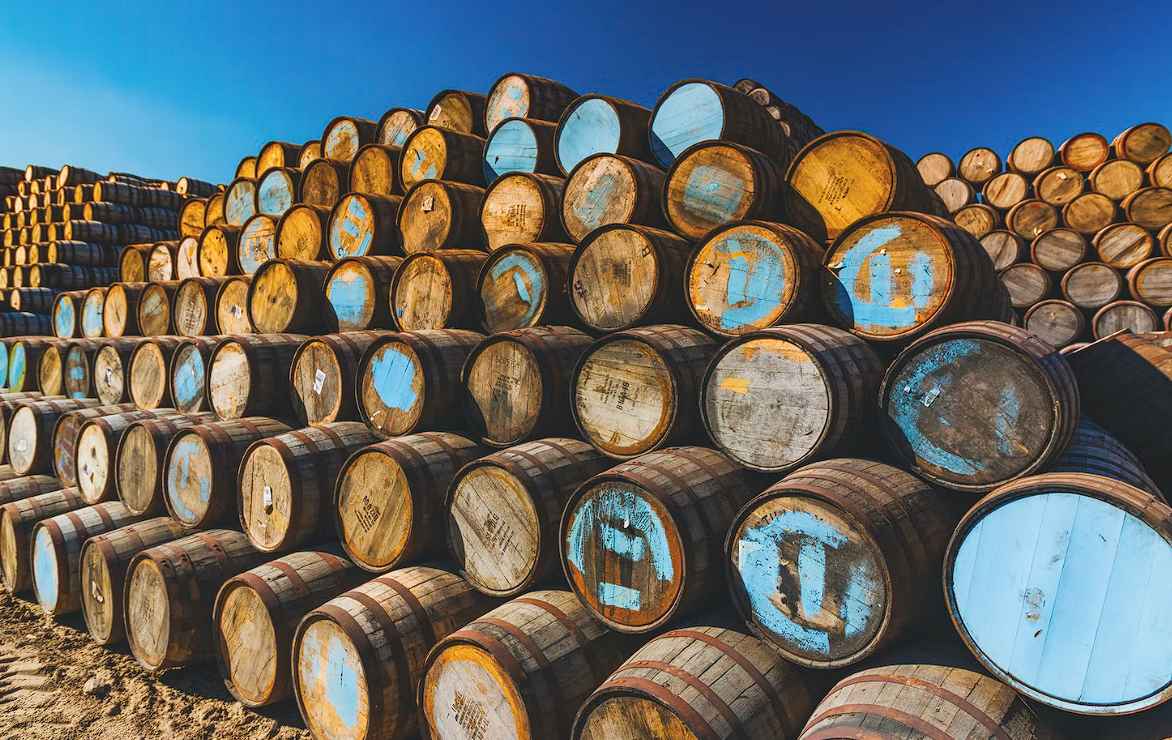
Australia's Best Distilleries To Inspire You
Never Never Distilling Co - SA
This South Australian distillery is quickly gaining popularity as one of the region's top gin producers. The Never Never Distilling Company was established in McLaren Vale about four years ago as a side project among two friends. The company is now responsible for creating some of the highest-quality gins in the country. At the 2022 World Gin Awards, their Triple Juniper Gin was recognised as the World's Best London Dry Gin, and their master distiller, Tim Boast, was honoured as the Master Distiller of the Year.
Never Never's Southern Strength Gin and Juniper Freak Gin each won Double Gold at the prestigious San Francisco World Spirits Competition 2022, also known as the "Oscars of Booze," while Never Never's Argo Gin managed to score a grand total of 98 points at the International Wine Spirits Competition 2022. Both of these gins were produced by Never Never. The accumulation of medals continued at The Gin Masters 2022, where Never Never was awarded a Master medal for their modern Dark Series Oyster Shell Gin. This brought the total number of medals won to four.
Four Pillars - VIC
When it concerns distilleries that have won awards, there is no requirement to give an introduction to Four Pillars. Since it first appeared on the market almost ten years ago, the distillery located in Healesville, Australia, has grown to be one of the pioneering gin manufacturers in the world.
In 2019, the distillery was recognised as having achieved this status at the International Wine Spirits Competition held in London. Since being initially introduced to the market in 2014, the Four Pillars Rare Dry Gin has garnered numerous accolades in the form of gold, double gold, and even Master medals at a variety of events held within the market. It is considered by many to be one of the finest gins in the world.
At the World Gin Awards 2022, they were given the titles of Brand Innovator of the Year and Distiller of the Year, the most recent additions to their trophy case, which is already brimming with honours. At The Gin Masters 2022, Four Pillars was awarded Master medals not only for its Spiced Negroni, Rare Dry, and Rarest Dry gins but also for its Bloody Shiraz gin and the Four Pillars x Yarra Yering Single Vineyard Underhill Bloody Shiraz gin.
Archie Rose - NSW
They claim that even if you called a rose by a different name, it would still smell as sweet. Unfortunately, this statement could not be more accurate when it comes to the Archie Rose Distilling Company.
The New South Welsch ginfluencer is now officially making one of the top juniper drops in the planet, as evidenced by the fact that their gins have earned them some major precious metals throughout the 2022 awards season. At the World Gin Awards 2022, the Archie Rose Bone Dry Gin was recognised as both the best gin in its category and the best gin generally. Additionally, in the area of Master Distiller of the Year, they received a very high commendation.
The company's Distiller's Strength Gin has been awarded Double Gold medals in the 2022 San Francisco World Spirits Competition and the 2022 New York World Spirits Competition. This is just the latest in a string of successes for the company. At The Gin Masters 2022, both their Signature Dry Gin and their Distiller's Strength Gin were recognised with gold medals.
Cape Byron Distillery - NSW
If the idea of drinking gin that was produced in a sustainable manner appeals to you, then you need look no farther than the Cape Byron Distillery, which produces Brookie's Gin. At the World Gin Awards 2022, the hinterland spirits producer was recognised with a high commendation in the field of the sustainable distillery of the year.
Their Byron Dry Gin won gold at the San Francisco World Spirits Competition and gold and the customer's choice award at the 2022 SIP Awards. Both of these accolades can be added to their collection. In addition to receiving a gold award, the Brookie's Byron Slow (Sloe) Gin, which is created from the native Davidson Plum, was voted the customer preference.
Devil’s Thumb - QLD
The principle that inspires Port Douglas Distillery's Devil's Thumb is rooted in the concept of provenance. Devil's Thumb focuses on capturing the spirit of Far North Queensland in a bottle, from the way it gathers its wild herbs in the nearby forest to how it uses the water that naturally flows through the region in its distilling process.
Even the distillery was called after a major cultural site in the Daintree National Park that narrates the narrative of the genesis of fire. This location is referred to as Manjal Jimalji by the Eastern Kuku Yalanj.
This bold strategy is mirrored in the product's excellence, as evidenced by the fact that the Devil's Thumb Navy Strength Gin was awarded the title of World's Best Navy Gin at the World Gin Awards 2022.
Ready to Distill?
It is a complex process to begin a distillery. Still, if you adhere to the instructions and recommendations provided in this article, you may significantly start preparing yourself for the challenging trip that lies ahead.
Therefore, if you are prepared to show your booze to the rest of the world, then we are prepared to sample it.
Find a good spot, obtain all of the necessary equipment and permissions, and then begin selling your item to customers all over the world after you have crafted an excellent and plausible business strategy. Cheers!
Frequently Asked Questions
Distillation and Reflux. As alcohol and water vapours rise from the pot, they enter the copper column where they "reflux" – the lighter alcohol vapours continue to rise, and the water falls back to the pot. The temperature of the column, and degree of reflux, control the quality and flavour of the distillate.
One of the driving factors behind the growth in the distillery industry is premiumization: the concept that consumers are willing to pay more for a product that they perceive is unique and one-of-a-kind. Successful craft distilleries aren't just selling a product. They're selling a story.
The distillery industry uses sugarcane molasses, cereals, and other agro products for producing alcoholic beverages. The production of fermented and distilled drinks throughout the world is based on materials that can be grown locally and are best suited to prevailing climatic conditions.
One of the driving factors behind the growth in the distillery industry is premiumization: the concept that consumers are willing to pay more for a product that they perceive is unique and one-of-a-kind. Successful craft distilleries aren't just selling a product. They're selling a story.
When distilling, a proofing hydrometer (also called a spirit hydrometer) is used by distillers to measure final alcohol content, which also indicates density but only involves a single measurement. The biggest difference between proofing and brewing hydrometers is the scale.
